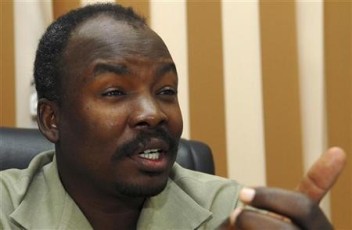Sudan accuses troika of obstructing aid deal
September 11, 2012 (KHARTOUM) – A Sudanese official has accused the troika consisting of the United Nations (UN), the African Union (AU) and the Arab League (AL) of being responsible for the failure of a deal they brokered between the government and rebels to deliver humanitarian assistance in the country’s war-battered regions of South Kordofan and Blue Nile.

The SPLM/A-N accused the government of obstructing the implementation of the deal while a senior UN official told Sudan Tribune on the condition of anonymity more than two weeks ago that government officials skipped a meeting to discuss the initiative on the pretext of the Eid Al-Fit holiday.
Further criticism came from the United States (U.S.) envoy to the UN, Susan Rice, who said on 6 September that the government’s approach to the humanitarian agreement was “intolerable”
But the governor of South Kordofan State, Ahmed Haroun, sought on Tuesday to absolve the government of any blame, assigning the responsibility instead to the tripartite partners whose representatives he said were absent from three meetings to discuss the implementation of the agreement.
Haroun, who was speaking in an interview published by the daily newspaper Al-Sahafah, said that Rice’s accusations that the government was hampering the deal are “untruthful”
The governor stated that he was not surprised by Washington’s criticism, pointing out that the U.S. will never be satisfied with Khartoum no matter what it does.
He further countered accusations that government officials failed to attend meetings, saying it was actually the tripartite partners who skipped three meetings citing the existence of their representatives outside Sudan.
Haroun told the paper that efforts must focus on resolving the main issue which is “stopping the war” and not allowing humanitarian issues to complicate the situation further.
The governor turned his fire towards the SPLM/A-N, accusing it of being responsible for what he admitted was dire humanitarian conditions of the civilians in their area due to the fact that the rebels are the ones who ignited the war.
According to Haroun, the gateway to peace in the two region is severing the connections between the SPLM/A-N and the government of South Sudan. He added that South Sudan must realize that there is no avail from resolving any issues with Sudan if the security issue is not addressed.
The current conflict erupted in South Kordofan in June and spread to Blue Nile in early August last year. It was ignited by the government’s attempts to disarm SPLM/A-N combatants who fought as part of the army of South Sudan before it gained independence in July of the same year.
Sudan accuses South Sudan of supporting its former comrades-in-arms, a charge Juba denies.
(ST)
